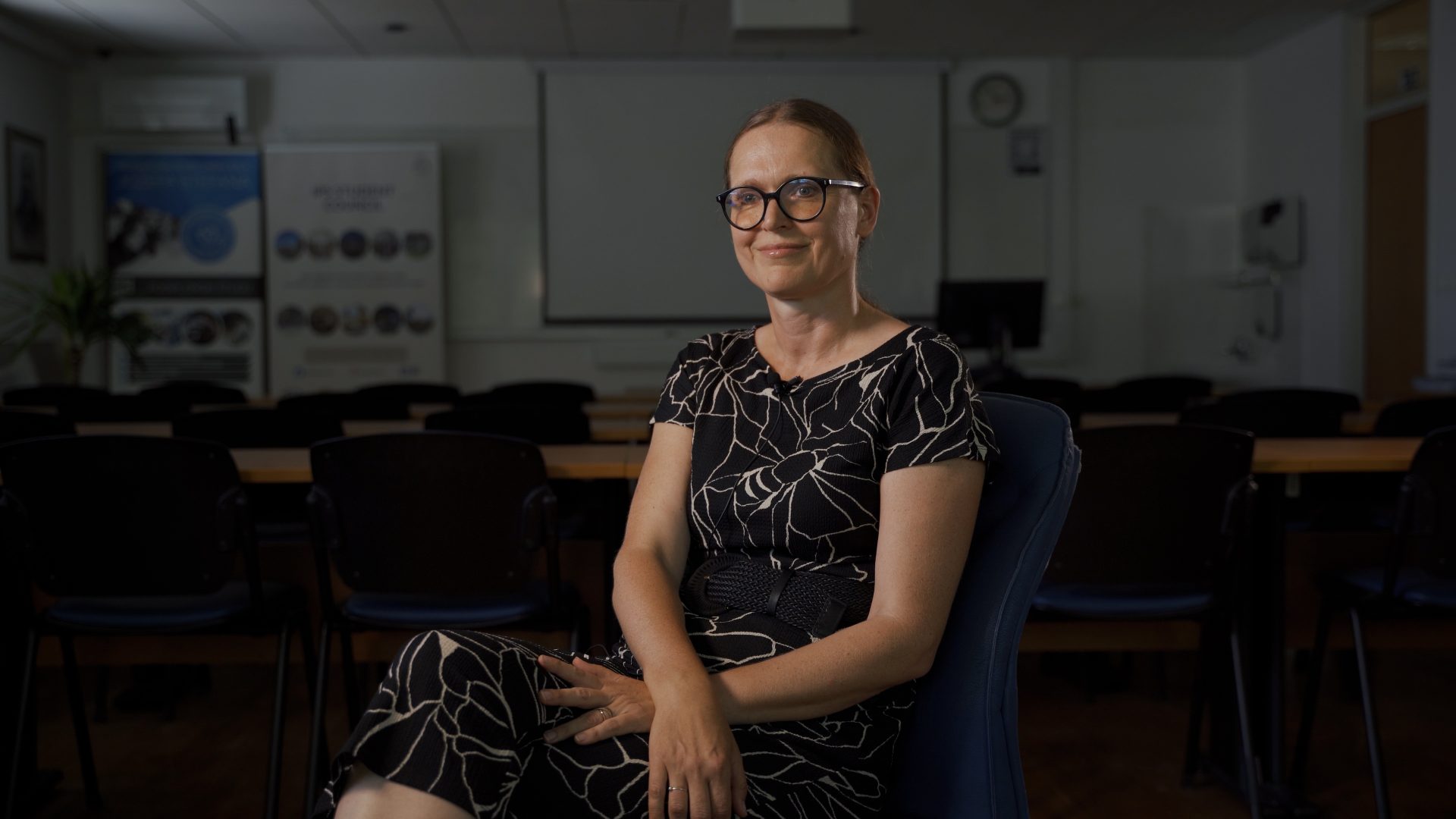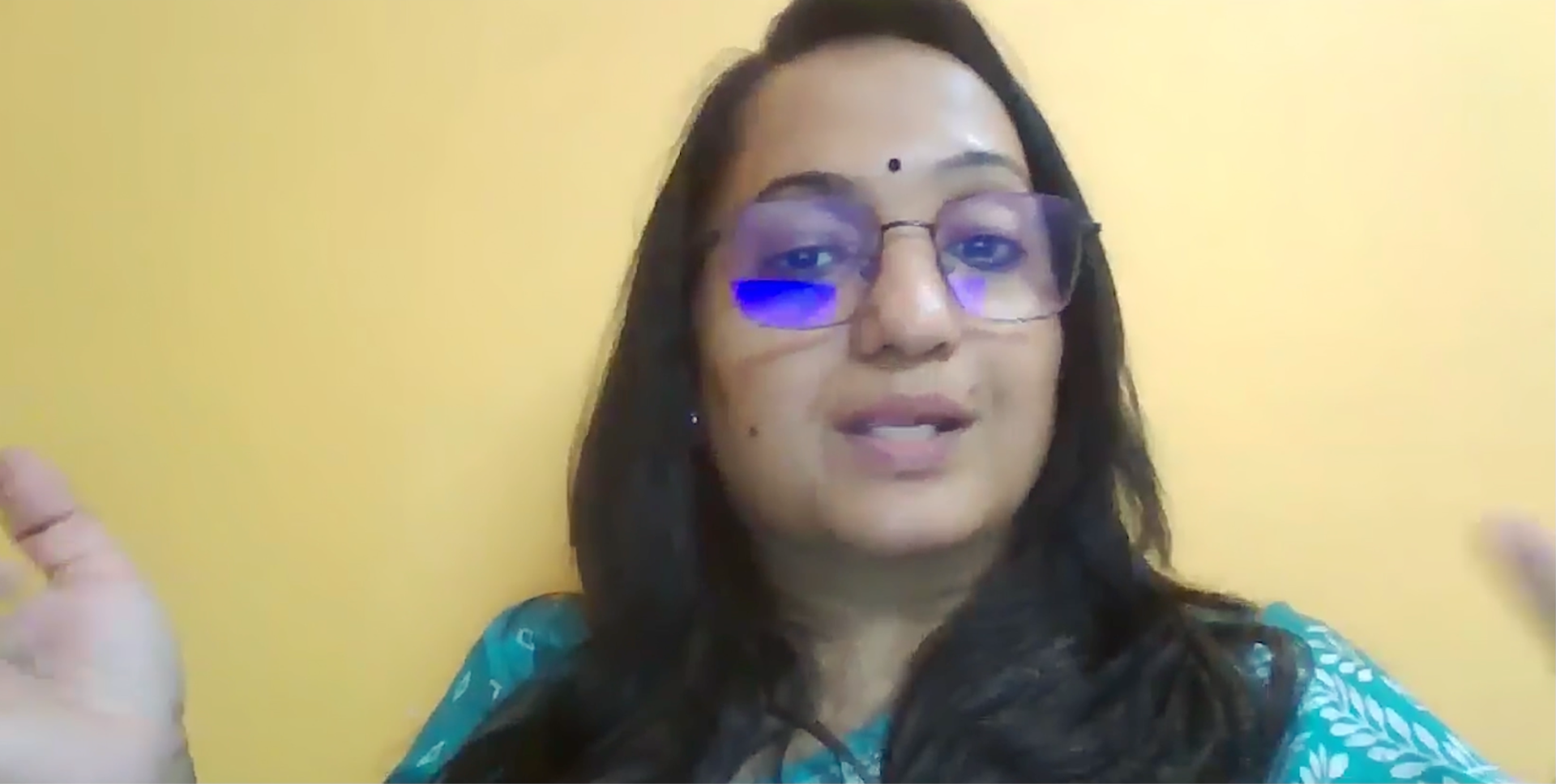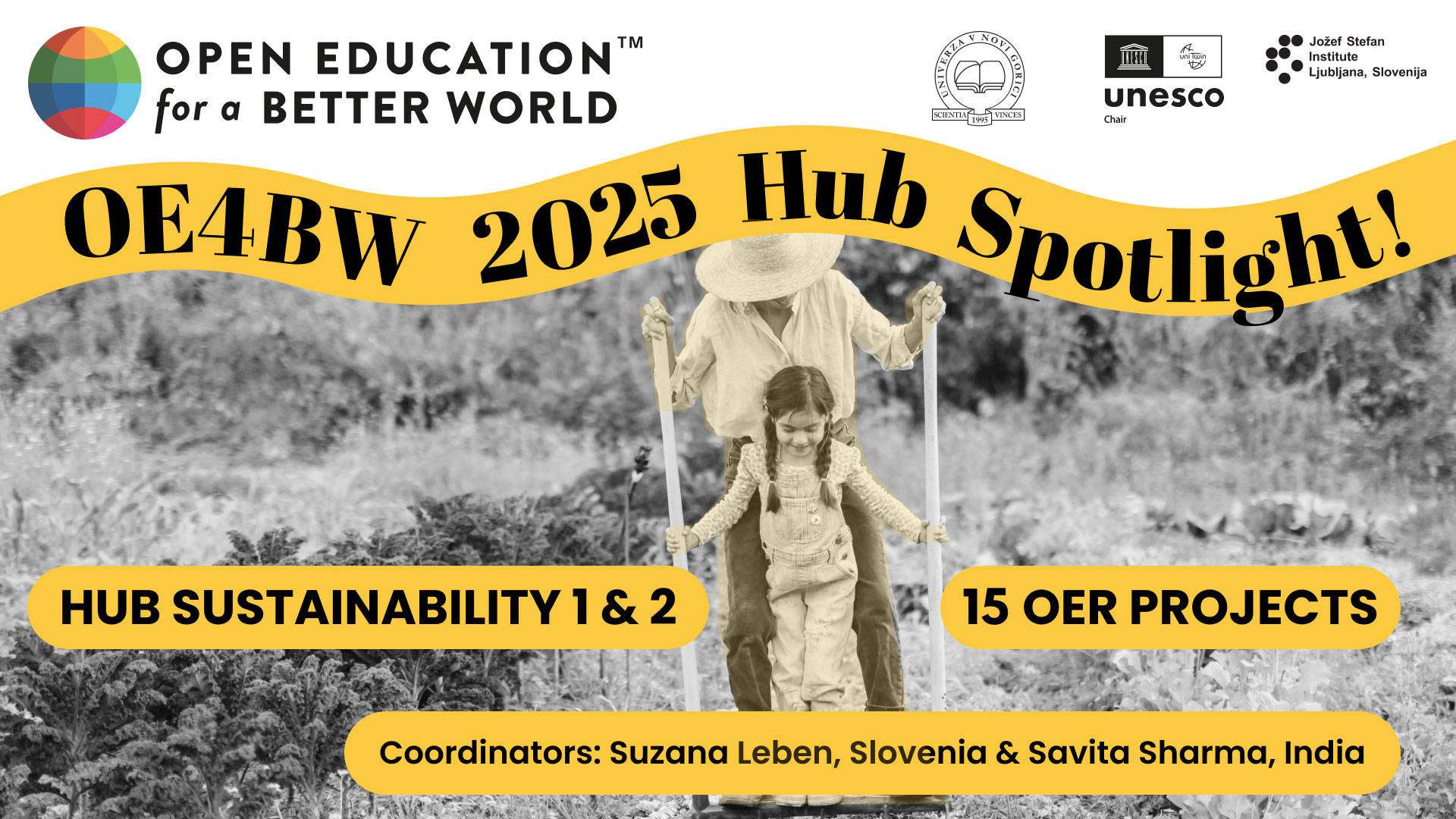Following our first Spotlight on the Youth Hub, we now turn our attention to another of our core themes – sustainability. This year, OE4BW proudly supports two Sustainability Hubs, collectively guiding 15 projects that aim to harness open learning and open education for a more sustainable and inclusive future.
Sustainability Hub 1, led by Suzana Leben, hosts 8 projects spanning environmental awareness, social equity, and sustainable development through open educational resources.
Sustainability Hub 2, coordinated by Savita Sharma, brings together 7 projects that tackle real-world challenges such as digital well-being, inclusive education and sustainability literacy.
We invite you to listen to or read both inspiring interviews with Suzana and Savita as they share insights into their hubs, highlight standout projects, and reflect on the importance of collaboration, innovation, and impact in the OE4BW mentoring program.

Suzana Leben, Hub Sustainability 1
You can watch the full interview on Videolectures website:
https://videolectures.net/videos/OE4BW2025HubSpotlight_leben_hub
How many projects are part of this year’s Sustainability Hub 1?
Suzana Leben: This year, we have two Sustainability Hubs. Sustainability Hub 1 includes eight projects.
Who are the participants?
Suzana Leben: This year, the projects come from all over the world—practically every continent. Participants are from Canada, Australia, Indonesia, Finland, Spain, Cyprus, Singapore, and Austria. The projects are very diverse, and so are the participants. Many come from the field of education; they are researchers and educators working on topics like digital storytelling, digital intelligence, and sustainability education.
What sustainability challenges are the projects addressing?
Suzana Leben: The projects target various sustainability goals, such as climate action, responsible consumption, life on land, and quality education. They also take on different formats—digital courses, MOOCs, digital books, and storybooks, for example.
Are any of this year’s projects integrating AI or digital tools to enhance their impact?
Suzana Leben: Practically all of the projects use some kind of digital tools. One project is specifically exploring AI and digital intelligence in the context of sustainability education. Others are using collaborative platforms and digital tools to develop high-quality courses.
What are your plans for the Sustainability Hub this year?
Suzana Leben: This year, we’re planning a series of check-in sessions and peer-sharing meetings. We’ll also hold a midpoint presentation in July to ensure that the materials are progressing well and meet the quality standards for the final presentation, which will take place at SCOPE 2025. Supporting the developers through this journey is one of our main goals.
What is different from previous years?
Suzana Leben: This year, there is a stronger focus on project planning and on reusing OERs from previous cohorts. There’s also a greater emphasis on supporting developers throughout their OE4BW journey—from the start all the way to the final presentation.
What challenges do participants typically face when developing sustainability-focused OERs? How do you and the mentors support them?
Suzana Leben: Most developers struggle with time management—how to optimize their content within the given timeline or how to effectively reuse existing open educational resources. They also sometimes have trouble using digital tools. Mentors, along with co-mentors, are there to guide them through these challenges and offer hands-on support throughout the process.
Tell us a little about yourself—what’s your background and what do you do outside OE4BW?
Suzana Leben: I work as a business advisor to the CEO. My background is in strategy formulation, strategic planning, and sustainability management—so in many ways, this ties closely to what we’re doing here at OE4BW. That’s what makes this work so fulfilling.
What motivated you to get involved with OE4BW and the Sustainability Hub specifically?
Suzana Leben: I’ve always believed in education—especially open education. I think we all need to continuously educate ourselves, and we should make education accessible to everyone, regardless of their circumstances. That’s why open educational resources are so important. And sustainability is not just about us—it’s also for our children and future generations. It’s essential in our everyday lives and work.
How long have you been part of OE4BW, and what changes or growth have you observed over the years?
Suzana Leben: I’ve been part of OE4BW for several years. I started as a mentor, and this is my first year with the Sustainability Hub and my second year as a hub coordinator. Over the years, I’ve seen the quality of the projects improve significantly. There’s also more cultural diversity, with many great projects being developed. The support structure has become stronger and more robust each year. I also see increasing interest in interdisciplinary collaboration and cross-cultural exchange, which is really encouraging.
What does your role as coordinator of the Sustainability Hub 1 involve?
Suzana Leben: As a coordinator, I work closely with both developers and mentors. I guide developers from the beginning of their project journey all the way to the final presentation. My role involves helping them create their open educational resources and supporting them in preparing for the final presentation at the end of the cycle. My main goal is to ensure that as many projects as possible reach completion and achieve high quality.

Savita Sharma, Hub Sustainability 2
You can watch the full interview on Videolectures website:
https://videolectures.net/videos/OE4BW2025HubSpotlight_sharma
How many projects are part of this year’s Sustainability Hub 2?
Savita Sharma: Sustainability Hub 2 has a total of seven active projects. Initially, nine projects were allocated, but two could not continue.
Who are the participants?
Savita Sharma: The participants represent a diverse range of countries, cultures, and professions. Most developers are from India and Ghana—one of the mentors is from the U.S., and we also have a developer from Europe. Professionally, they largely come from the teaching community, particularly higher education. We have teachers from disciplines such as commerce, teacher education, and chemistry. Their backgrounds reflect the powerful role education plays in creating awareness and fostering action around sustainability. I’m very encouraged to see that most developers are from the education domain, as this gives us a meaningful opportunity to drive change in sustainability.
What sustainability challenges are the projects addressing?
Savita Sharma:This year, we have a fascinating and diverse set of themes. Projects address challenges like using technology sustainably, raising awareness around sustainability through literature and culture, and leveraging open education to support children with special needs. These projects are grounded in real-life issues that are closely connected to sustainability. The developers are actively working to address these through their OERs and MOOCs.
Are any of this year’s projects integrating AI or digital tools to enhance their impact?
Savita Sharma: Out of the seven active projects, four are being developed as OERs and three as MOOCs. They’re experimenting with a range of digital tools—some innovative, others more traditional. Canvas continues to be a favorite because of its user-friendliness. In addition, we’ve seen tools like Book Creator and H5P being used. One developer is even using Libertex, a particularly interesting platform, to launch a resource book. It’s exciting to see this variety of tools being explored.
What are your plans for the Sustainability Hub this year?
Savita Sharma: I believe in the collective power of open education, and collaboration is central to this initiative. As the hub coordinator, my focus this year is on strengthening collaboration—whether it’s in content creation, peer learning, or best practices exchange. For instance, developers who’ve already completed courses can share their experiences with newer participants. We’ve created a WhatsApp group to share resources and support each other—especially during pre-launch phases of new courses. If someone is launching a course targeted to a specific audience, we help with outreach and visibility. Collaboration is the key theme I’m trying to embed in every aspect of OER and post-development activities.
What challenges do participants typically face when developing sustainability-focused OERs? How do you and the mentors support them?
Savita Sharma: One of the biggest challenges developers face is adhering to timelines. Even though participation is voluntary, balancing this work with other commitments can be difficult for both developers and mentors. Coordinating meetings across different time zones also adds to the challenge, and frequent communication between mentors and developers often becomes irregular. Another issue is around understanding open licensing. Although OE4BW organizes webinars and expert sessions on licensing, I believe developers need deeper knowledge in this area. One suggestion I have is to introduce more structured learning requirements before developers begin their course work, to ensure they have mastery over licensing and related concepts.
There’s also a need for a common platform—especially for MOOCs. Developers have expressed interest in a shared platform for launching their courses, which would provide consistency and support. While this has its pros and cons, it’s a recurring theme in discussions with our developers.
Tell us a little about yourself—what’s your background and what do you do outside OE4BW?
Savita Sharma: I’m primarily a teacher educator and a mindfulness practitioner. I’ve been practicing mindfulness for over ten years and strongly believe in its power to improve the quality of life—especially in today’s fast-paced world. The pandemic refocused attention on well-being, which is something I’m very passionate about. I actively share the benefits of mindfulness with my students and peers in the teaching community.
What motivated you to get involved with OE4BW and the Sustainability Hub specifically?
Savita Sharma: I come from the field of teacher education and have explored education from philosophical, sociological, and psychological perspectives. I believe one essential dimension of holistic education is using learning as a process for personal development. When I connect this with the idea of open education—learning without boundaries—I see it as a path toward transformative learning. As we gain knowledge freely, we become empowered. In today’s digital world, every learner has the right and the opportunity to explore these possibilities. OE4BW is a platform that champions knowledge-sharing and lifelong learning, which is why I’m so passionate about being part of it.
How long have you been part of OE4BW, and what changes or growth have you observed over the years?
Savita Sharma: My first association with OE4BW began in 2021. Before that, in 2020, I developed a course through IIT Kanpur. Since joining OE4BW, I’ve developed three courses—one in 2021, another in 2023 in collaboration with Dr. Sneha Bansal, and another in 2024. I’ve also mentored four times, and now, with great pride, I’m serving as a hub coordinator. It’s been a continuous learning journey—not just from mentors and developers, but also from other hub coordinators during conferences and collaborative activities.
Over the years, I’ve observed that awareness about OE4BW has grown. However, with the increased availability of information, developers need to be more discerning, especially regarding content quality and licensing. OE4BW has become more rigorous in maintaining quality standards—which is essential. I fully support the initiative to only advance final proposals that meet those standards. I’ve also witnessed more capacity-building support from OE4BW over time, which is invaluable for both mentors and developers.
What does your role as coordinator of the Sustainability Hub 1 involve?
Savita Sharma: I see my role as a facilitator. First, I ensure smooth coordination between mentors and developers, including regular meetings. I emphasize group discussions involving all projects because these sessions allow for meaningful experience-sharing and peer learning.
Second, I focus on providing the right kind of support—whether it’s solving everyday challenges or helping developers connect with others who’ve used certain tools or platforms. For example, if someone wants to create a digital book, I connect them with another developer or mentor who has experience with that.
Something I’m particularly passionate about is integrating a research dimension into this work. As we develop OERs and MOOCs, we gather valuable data—on user experience, impact, and more. Encouraging developers to analyze this data can help them measure the effectiveness of their resources. Understanding how participants’ knowledge or skills evolve through the course can drive improvements and help ensure quality. When developers and mentors are sensitized to this, they naturally become more focused on impact.



